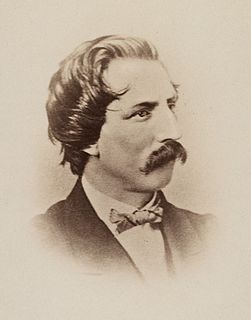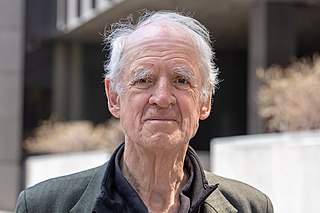A Quote by Charles Farrar Browne
Let us all be happy, and live within our means, even if we have to borrow the money to do it with.
Related Quotes
Money is a mystery. Not only is our behavior with respect to money sometimes puzzling and erratic, but our feelings about money are often contradictory, illogical, deep-rooted, and scarcely known even to our most secret selves. We are getting better at handling money, but what it means to us, how we use it to express ourselves, and how it can help us become all that we are meant to be remain murky issues.
God created us in joy and created us for joy, and in the long run not all the darkness there is in the world and in ourselves can separate us finally from that joy, because whatever else it means to say that God created us in His image, I think it means that even when we cannot believe in Him, even when we feel most spiritually bankrupt and deserted by Him, His mark is deep within us. We have God's joy in our blood.
No one should ever ask themselves that: why am I unhappy? The question carries within it the virus that will destroy everything. If we ask that question, it means we want to find out what makes us happy. If what makes us happy is different from what we have now, then we must either change once and for all or stay as we are, feeling even more unhappy.
We define our identity always in dialogue with, sometimes in struggle against, the things our significant others want to see in us. Even after we outgrow some of these others—our parents, for instance—and they disappear from our lives, the conversation with them continues within us as long as we live.
I have given up the ambition to be a great scholar. I want to be more- simply a human. . . . We are not true humans, but beings who live by a civilization inherited from the past, that keeps us hostage, that confines us. No freedom of movement. Nothing. Everything in us is killed by our calculations for our future, by our social position and cast. You see, I am not happy-yet I am happy. I suffer, but that is part of life. I live, I don't care about my existence, and that is the beginning of wisdom.
The fact that oppressive and corrupt regimes can borrow money in the name of the whole country means that the country's future generations will be weighed down by interest and repayment burdens, even if the money has been frittered away in some frivolous way, embezzled or used for weapons to suppress the country's population.
Why can't we simply borrow what is useful to us from Buddhism, Hinduism, Taoism, especially Zen, as we borrow from Christianity, science, American Indian traditions and world literature in general, including philosophy, and let the rest go hang? Borrow what we need but rely principally upon our own senses, common sense and daily living experience.






































